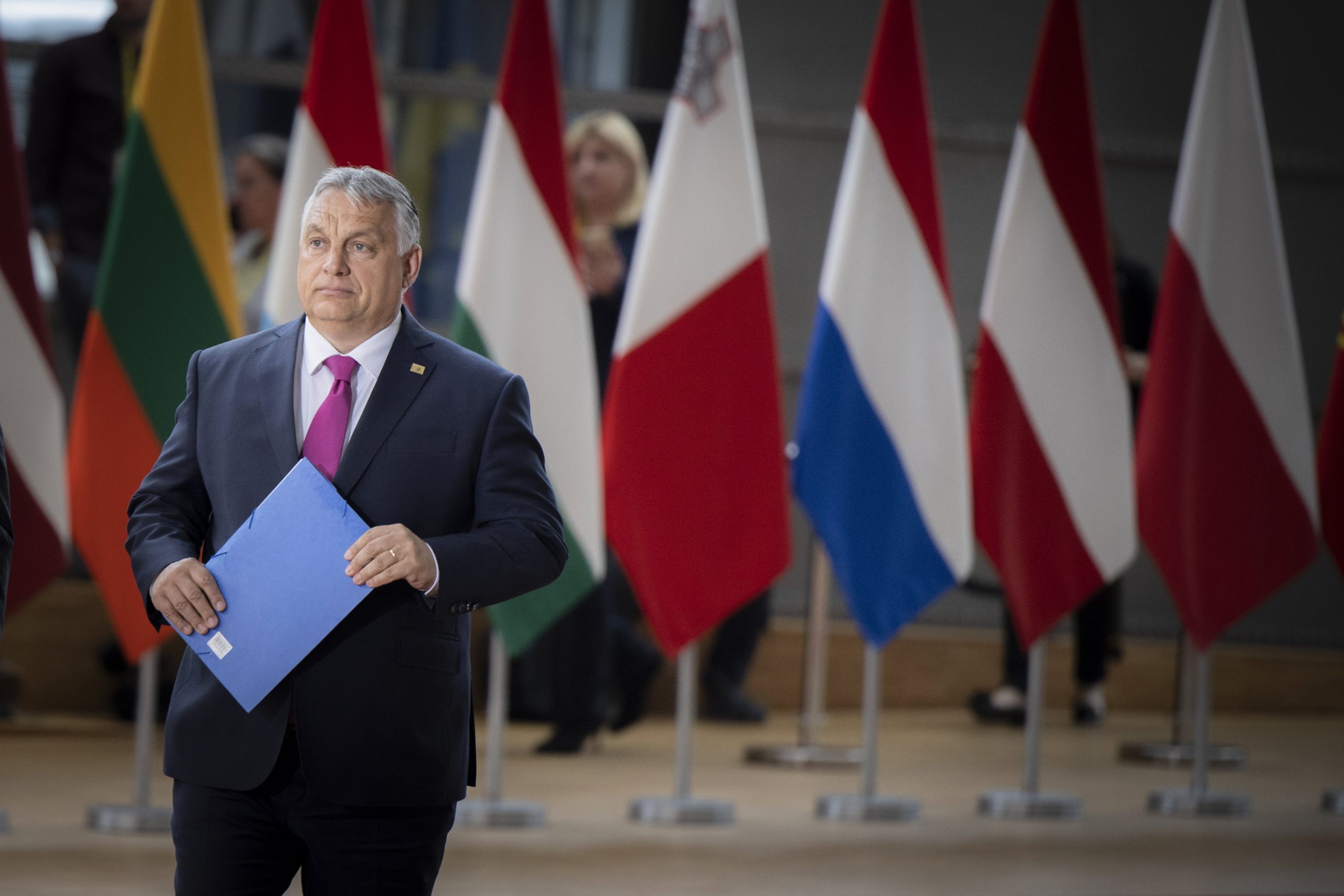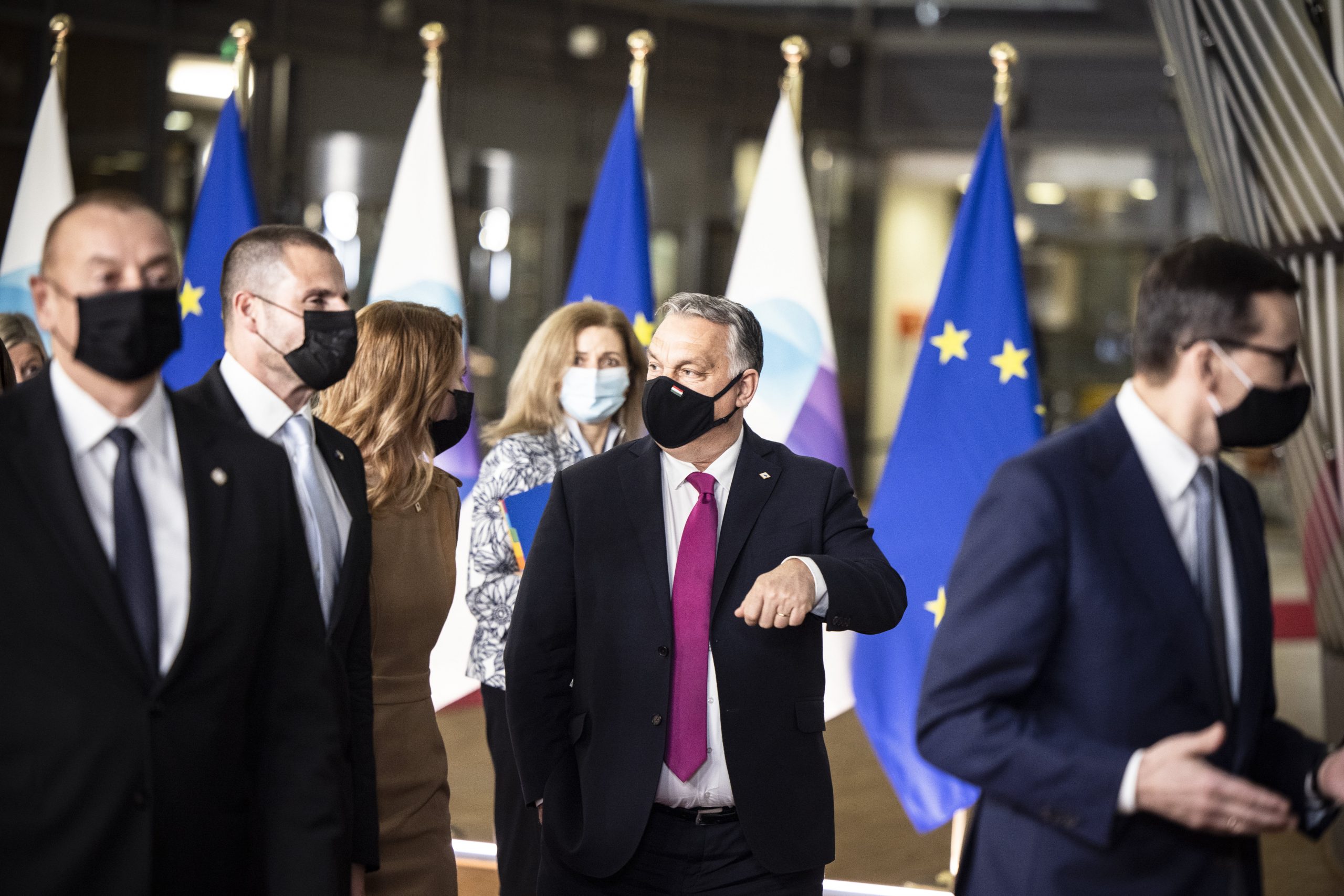
"We brokered an agreement that states that those countries that get oil delivered via pipeline may continue managing it under the old conditions," he said.Continue reading

After hours of talks in Brussels on Monday, the leaders of the 27 European Union member states reached a partial agreement on the sixth round of sanctions against Russia. To persuade the Hungarian government, the draft sanctions include a clause stating that the embargo only applies to Russian oil arriving by tanker, while oil arriving by pipeline is exempt from the import ban, Telex reports.
The most controversial element of the sanctions package was the embargo on oil imports from Russia, which the Hungarian government has stubbornly long opposed – and since decisions at the highest level of the EU require full agreement from Member States, Hungary was the only Member State that could threaten to veto the whole package. Neither Slovakia nor the Czech Republic fully supported the oil embargo, as these two countries, like Hungary, are also heavily reliant on the Russian oil pipeline called Friendship, but there were also reports of specific Croatian and Bulgarian demands.
Dutch Prime Minister Mark Rutte also noted that it was not just Hungary that had expressed concerns about the impact on its own economy:
I think to have the whole picture we have to acknowledge that they are in a difficult position because they are using Russian oil. And because their refineries are only working on this particular crude [oil],”
he told reporters at the end of the first day of the summit. “So, in that sense, I think they have a point,” he said. Rutte added that “it is true that he [Orbán] very much pleaded for an exemption temporarily for Hungary, but also for the Czechs and Slovaks. But at the same time, they have this issue where we always acknowledged that there was a problem with the fact [that] they are very much dependent on Russian oil.”
As for the length of the exemptions, Rutte said that will be a matter for leaders to decide: “We agreed tonight that we’ll come back to the next European Council. Of course, we have to assess how much time it takes for countries like Hungary to rebuild their refineries and what is reasonable in terms of the time-lapse.”
To persuade the Hungarian government, the draft sanctions include a clause stating that the embargo only applies to Russian oil arriving by tanker, while oil arriving by pipeline is exempt from the import ban. However, just before the summit started on Monday afternoon, Viktor Orbán came up with a new demand: that Hungary should be given a guarantee that if something happens to the oil pipeline through Ukraine, Hungary will still have access to offshore oil supplies.
Hungarian Prime Minister Viktor Orbán posted on Facebook following the long day of discussions: “An agreement was reached. Hungary is exempt from the oil embargo!”
We have protected [the government’s cap on household utility bills] and successfully staved off a proposal by the Commission that would have prohibited the use of Russian oil in Hungary,”
Orbán said in the early hours on Tuesday, after the first day of a summit in Brussels.
“We have enough problems already: energy prices are soaring, inflation is high, and all of Europe is teetering on the edge of a global economic crisis because of the sanctions. Under these circumstances, it would have been unbearable for us if we had to run the Hungarian economy with dearer oil, it would have been like a nuclear bomb, but we successfully avoided this,” he said on Facebook.
We brokered an agreement which states that those countries that get oil delivered via pipeline may continue managing it under the old conditions,”
the Prime Minister added.
He concluded: “Families can sleep well tonight, we have managed to avoid the most hair-raising idea.”
Charles Michel, the President of the European Council, which provided the institutional framework for the summit, also announced the success of the negotiations after midnight, saying that the punitive measure would immediately affect two-thirds of Russian oil exports to the EU and that, according to French officials, 90% of Russian oil imports would disappear by the end of the year. But the details are still being worked out.
Ukrainian President Volodymyr Zelenskyy, who arrived from Kyiv for the European Council meeting, urged the EU Member States to act swiftly and be united. At the European Council meeting, it was voted on that Ukraine should receive €9 billion to finance the country’s recovery.
Other punitive measures were also agreed upon at the summit. The largest Russian financial institution, Sberbank, will be excluded from the SWIFT international financial clearing system, three Russian state-owned broadcasters will be banned from EU access, and sanctions will be imposed on individuals who are suspected of war crimes in Ukraine.
Featured illustration: Prime Minister Viktor Orbán at the meeting of Heads of State and Government of the EU Member States and the Eastern Partnership countries of the European Union in Brussels on December 15, 2021. Photo by Zoltán Fischer/MTI/Prime Minister’s Press Office